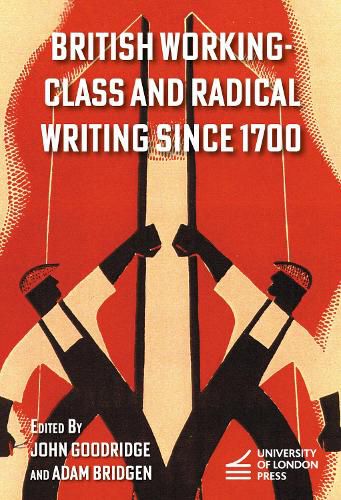Readings Newsletter
Become a Readings Member to make your shopping experience even easier.
Sign in or sign up for free!
You’re not far away from qualifying for FREE standard shipping within Australia
You’ve qualified for FREE standard shipping within Australia
The cart is loading…






An essential history of how literature became a battleground for class struggle and political dissent in Britain.
At a time when working-class writing is gaining long-overdue recognition and radical ideas may be more important than ever, this timely collection of eighteen essays examines the powerful intersection of British working-class and radical writing from the eighteenth century to the present day.
Taking the pioneering work of H. Gustav Klaus on British labouring-class, socialist and anarchist writing traditions as its foundation, the volume embraces variety to reflect the richness of working-class and radical cultures across the last three centuries. Cross-cutting topics include the ways in which working-class writers got into print, the obstacles they faced in doing so and in expressing their views, the rise of women writers and their involvement in radical culture, representations of animals and more-than-human perspectives, socialism and environmentalism, feminism, anti-imperialism, and the intersection of working-class and diasporic identities.
Questions of genre and form are also addressed, from dialect poetry to the novel, pastoral to melodrama, and life writing to theatre. Showcasing a wide range of innovative approaches, the volume contributes significantly to recovering the literary work and radicalism of several little-studied and forgotten working-class authors, as well as reappraising better-known figures such as John Clare and Ethel Carnie Holdsworth.
$9.00 standard shipping within Australia
FREE standard shipping within Australia for orders over $100.00
Express & International shipping calculated at checkout
An essential history of how literature became a battleground for class struggle and political dissent in Britain.
At a time when working-class writing is gaining long-overdue recognition and radical ideas may be more important than ever, this timely collection of eighteen essays examines the powerful intersection of British working-class and radical writing from the eighteenth century to the present day.
Taking the pioneering work of H. Gustav Klaus on British labouring-class, socialist and anarchist writing traditions as its foundation, the volume embraces variety to reflect the richness of working-class and radical cultures across the last three centuries. Cross-cutting topics include the ways in which working-class writers got into print, the obstacles they faced in doing so and in expressing their views, the rise of women writers and their involvement in radical culture, representations of animals and more-than-human perspectives, socialism and environmentalism, feminism, anti-imperialism, and the intersection of working-class and diasporic identities.
Questions of genre and form are also addressed, from dialect poetry to the novel, pastoral to melodrama, and life writing to theatre. Showcasing a wide range of innovative approaches, the volume contributes significantly to recovering the literary work and radicalism of several little-studied and forgotten working-class authors, as well as reappraising better-known figures such as John Clare and Ethel Carnie Holdsworth.